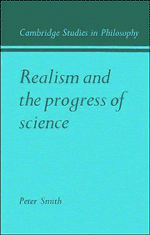4 - Cluster theories of reference
Published online by Cambridge University Press: 07 October 2011
Summary
NATURAL KIND PREDICATES AND PROPER NAMES
During the course of the last chapter we left off directly answering our four questions in order to examine an argument of Quine's which purports to show that there is no fact of the matter about intentional states such as belief. If Quine's argument were correct, and in addition the scrutability of reference were to imply the determinacy of translation, then it would also succeed in showing that the references or extensions of many of the terms used by alien speakers, and even by our ancestors, were inscrutable. By extending Davidson's theory of radical interpretation in accordance with the methodology of Chapter 2, and by drawing attention to certain non-behavioural constraints that may be imposed on interpretation, I concluded that Quine had shown neither that a realist approach to intentional states must be rejected nor that the lack of determinacy attaching to the interpretation of ancestral, or even alien, predicates rendered their extensions inscrutable. We can now go back to our task of answering the remaining three questions with the assurance that Quine has not given a decisive a priori argument against an epistemic, or intentional, theory of reference. Moreover, such a theory of interpretation is needed to provide the very evidence about belief on which this sort of theory of reference is based. According to my account, a realist theory of reference is in this way grounded in a theory of interpretation. Let us see how.
- Type
- Chapter
- Information
- Realism and the Progress of Science , pp. 70 - 103Publisher: Cambridge University PressPrint publication year: 1981



